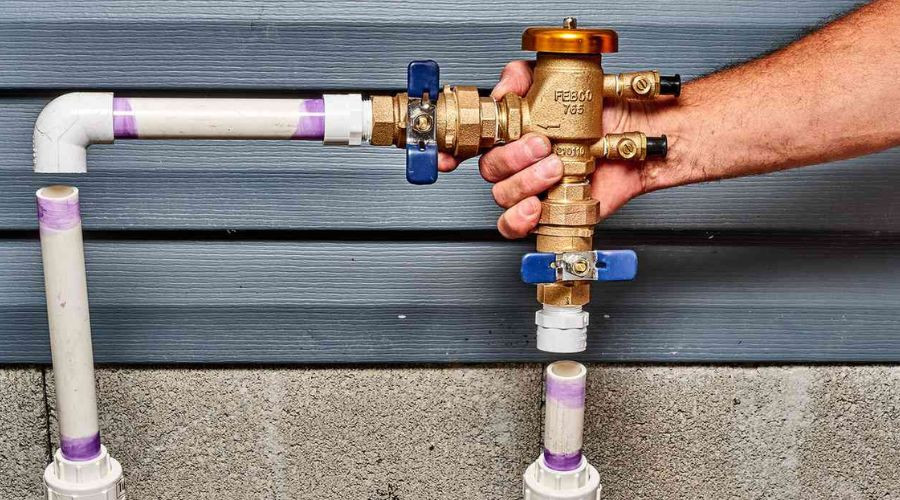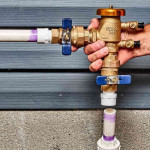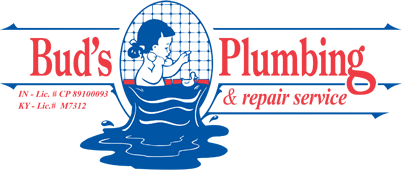What Is Backflow and Why Should I Care?
Every homeowner knows the importance of clean water from their taps. However, few consider the intricate workings of the system that make this everyday convenience possible. The plumbing system of the modern home works on the balance between water pressure in and out of the home. A key to keeping water safe and clean in the home is preventing backflow issues.
Backflow occurs when the normal direction of water flow reverses, potentially allowing contaminated water to enter the clean water supply. Backflow prevention systems are installed on all modern plumbing systems to combat this. Like all home appliances and systems, they must be routinely checked through backflow testing. These checks are necessary for homeowners to maintain their water supply.
Backflow Dangers Homeowners Need To Know
 Backflow can pose serious health risks. When a sudden drop in water pressure occurs, such as during a main break or heavy water use, contaminated water from the ground or other sources can enter the system. This can occur through damaged pipes, faulty valves, poorly installed connections, and other weak points along any plumbing system within the home. A backflow preventer is designed to stop this, but chemicals, pesticides, or even wastewater can seep into the home's water lines when it fails. This contamination can lead to waterborne diseases and significant health concerns. Drinking, washing, bathing, and using contaminated water exposes everyone in the home to health and safety violations. And the worst part is the water might look and smell clean and still have bacteria and other nasty stuff already! By simply keeping backflow systems in good working order, homeowners can ensure their families have access to safe, clean water!
Backflow can pose serious health risks. When a sudden drop in water pressure occurs, such as during a main break or heavy water use, contaminated water from the ground or other sources can enter the system. This can occur through damaged pipes, faulty valves, poorly installed connections, and other weak points along any plumbing system within the home. A backflow preventer is designed to stop this, but chemicals, pesticides, or even wastewater can seep into the home's water lines when it fails. This contamination can lead to waterborne diseases and significant health concerns. Drinking, washing, bathing, and using contaminated water exposes everyone in the home to health and safety violations. And the worst part is the water might look and smell clean and still have bacteria and other nasty stuff already! By simply keeping backflow systems in good working order, homeowners can ensure their families have access to safe, clean water!
What Is Backflow Testing and When Should It Be Done?
 Backflow testing is a specialized procedure ensuring the home's backflow prevention device operates correctly. A certified plumbing expert will come and check the system and inspect it for issues that could lead to backflow problems. Often, this involves shutting off the water supply briefly to inspect the backflow device's condition and function. They will also check to ensure water cannot reverse flow into the system from any source outside the home. The frequency of backflow tests can vary based on local regulations, but it's commonly advised to have an annual check-up. Proactive testing is the first line of defense for ensuring backflow issues do not impact home water supplies.
Backflow testing is a specialized procedure ensuring the home's backflow prevention device operates correctly. A certified plumbing expert will come and check the system and inspect it for issues that could lead to backflow problems. Often, this involves shutting off the water supply briefly to inspect the backflow device's condition and function. They will also check to ensure water cannot reverse flow into the system from any source outside the home. The frequency of backflow tests can vary based on local regulations, but it's commonly advised to have an annual check-up. Proactive testing is the first line of defense for ensuring backflow issues do not impact home water supplies.
Importance of Backflow Testing for Evansville Homeowners
For Evansville homeowners, backflow testing is beneficial and often required by local regulations. This is done to protect against water contamination. This essential service protects local and community water supplies and helps to prevent many waterborne public health risks.
Ensuring the home's backflow prevention device is adequately tested and certified is vital to maintaining access to clean, safe, usable water. Regular backflow tests can help residents contribute to the greater good by safeguarding their health and that of their neighbors. Local plumbing professionals can ensure all homes are properly equipped with high-quality, well-working backflow regulators.
About Bud's Plumbing & Repair Service
Water backflow is an often-overlooked issue for many homeowners, and it can have disastrous consequences if not properly managed. Regular backflow testing is a critical part of maintaining a healthy, safe water supply. Don't take clean water for granted—call Bud's Plumbing & Repair Service today and get the best backflow testing available.


















